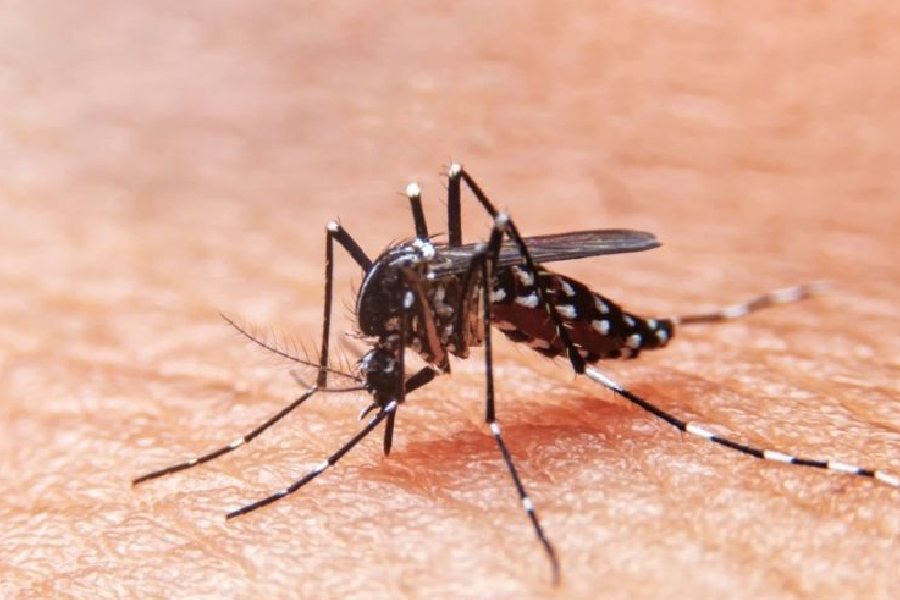The Jammu district has recorded more than 350 cases of dengue, which is showing an increasing trend in the past fortnight in the region, prompting authorities to take steps to deal with the mosquito-borne viral infection.
Doctors at the city's Government Medical College and hospitals, however, said there's no need to panic as the season always witnesses such increase in dengue cases.
A total of 486 dengue cases have so far been detected in the Jammu region and out of these, a maximum of 357 infections are recorded in Jammu district, officials said.
They said 46 cases were reported from Kathua, and 42 cases from Samba district. In other districts, there are dengue 10 cases in Rajouri, eight in Reasi, five in Udhampur, six in Poonch, four in Doda, one in Kishtwar, four in Kashmir, and three in other regions.
The majority of cases are reported from three districts of the Jammu region -Jammu, Samba, and Kathua, they said.
As many as 33 and 77 cases have been reported in Jammu on Saturday and Sunday, they said.
They said several of these patients have been admitted to hospitals and more than 100 have been discharged.
"This is a viral infection, we have to understand how it happens. First of all we need to understand that not everybody requires hospitalization, the majority of cases are self-limiting and they get better in a short while.
"However, people feel that this is a very dangerous disease. This misconception needs to be removed", Head of department (HoD), Microbiology, Government Medical College (GMC) hospital Dr Sandeep Dogra told PTI.
Allaying fears about a potential shortage of platelets for dengue patients, hospital authorities state that they have adequate facilities and sufficient stock of platelets "In dengue when there is a shortage of platelets, people panic that they aren't available, but there's no need to panic. We always have sufficient and adequate stock of platelets. The platelets that we make from whole blood, are called 'random donor platelets', they too are available and we also have Apheresis platelets", Head of Department (HoD), Blood bank, GMC, Dr Meena Sidhu told PTI.
"We always keep platelets in ready supply, because the shelf life of platelets is five days, after which they get spoiled. So there is some problem sometimes but even then we have 5-6 units always ready to transfuse platelets when required. Besides this we have given directions to our emergency staff to properly treat dengue cases", Medical Superintendent, Govt Hospital, Gandhinagar, Dr Pravin Yograj said.
Doctors at the hospital assured the public that they won't allow any such deaths to occur.
"I have two messages, one, don't let dengue happen to you, and secondly, if you get it don't panic, we have enough facilities to treat. And I assure that we won't let deaths happen because of dengue, we will fight with all our might", he said.
Except for the headline, this story has not been edited by The Telegraph Online staff and has been published from a syndicated feed.










